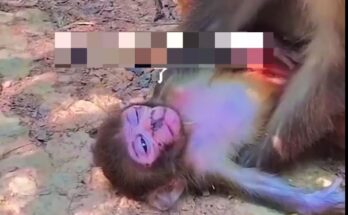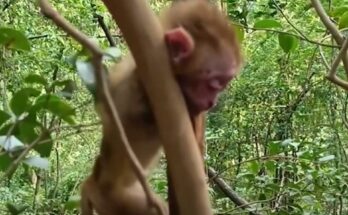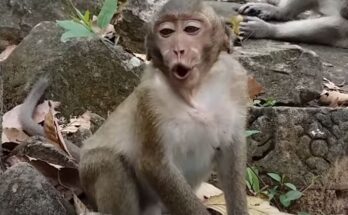Mother monkeys generally display a range of nurturing behaviors toward their infants, but in some cases, instances of harsh treatment or neglect have been observed. While this might seem counterintuitive to human perspectives of maternal care, it can be attributed to evolutionary, environmental, and social factors.
In certain species, mother monkeys may exhibit behaviors like rejecting, ignoring, or rough handling of their babies. This often occurs when a mother perceives her offspring as weak or unlikely to survive. For instance, if a baby is born with a deformity, illness, or is otherwise unfit, the mother may instinctively prioritize her energy and resources toward future offspring with better survival prospects. This behavior aligns with the principle of “reproductive success,” where animals focus on maximizing their genetic legacy.
Social dynamics also play a role in maternal behavior. In highly hierarchical species, such as rhesus macaques, low-ranking mothers might experience stress or limited access to resources, which can impact how they treat their infants. Stress or malnutrition can lead to inconsistent maternal care, making the mother more irritable or less attentive.
Interestingly, some primatologists suggest that rough handling might also serve a developmental purpose. By exposing their young to mild stress or discomfort, mothers could be preparing them for the challenges of social life. In species that live in competitive or aggressive groups, early exposure to these dynamics could enhance the baby’s survival skills later on.
However, not all “bad” maternal behavior is intentional. First-time monkey mothers may lack the experience needed to provide optimal care. Observing other mothers in the group often helps them learn nurturing behaviors.
Understanding these behaviors requires a careful and empathetic perspective that considers the complex ecological and social pressures shaping maternal strategies in the animal kingdom. What may appear cruel to humans often serves evolutionary purposes.


